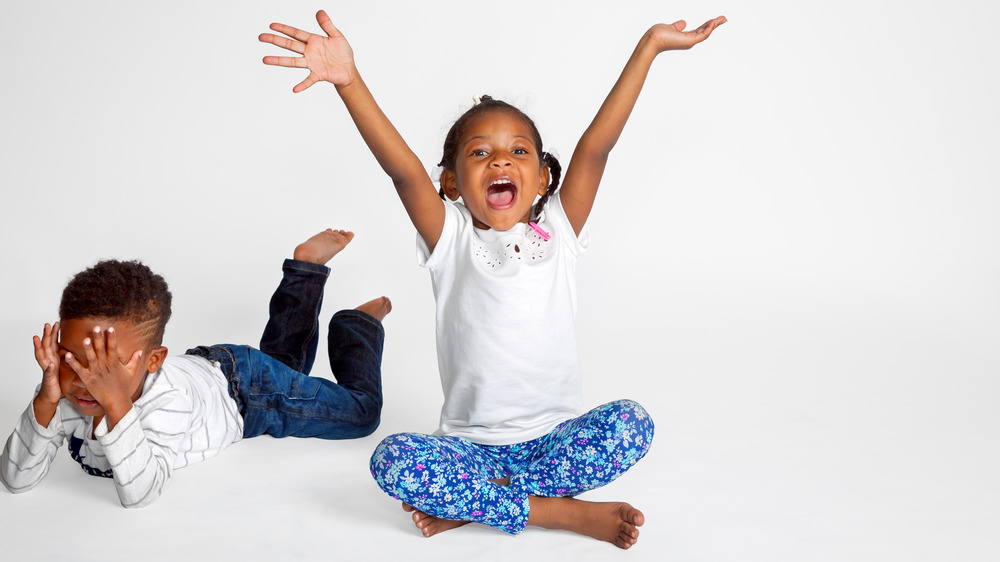The Real Difference Between Introverts, Extroverts, And Ambiverts
Are you an introvert or an extrovert? Or perhaps you're neither the one nor the other, but a bit of both, depending upon the occasion. There's a term for this third option, as well, that term being "ambivert." This is kind of like being ambidextrous, only instead of using your left and right hands in equal amounts, you have both outgoing and inward-turning personality traits.
Jaime Bronstein, who is a licensed therapist as well as being a relationship expert, told The List that our personality traits are developed as we are growing up, and that personalities are pretty much set by the time we become young adults. (Not to mention, set in concrete by the time we become old ones.) She doesn't really weigh in, however, as to whether it's nature (aka heredity) or nurture that determines your personality, saying "some people believe that one's environment determines their personality, yet others believe that people are just born a certain way." What Bronstein did do for us was to break down the differences between the three personality types and give us a little insight into how it affects their relationships.
What are introverts like?
Introverts, Bronstein says, "focus on their inner world more than their outer world." She explains that if you're an introvert you'll most likely feel "more comfortable with one or two people versus spending time in large group settings." Introverts can find large social gatherings to be "exhausting," she says, "...as they are sensitive to too much sensory overload." An introvert subject to too much stimulation will need to "recharge by getting centered and grounded by spending time alone."
Introverts have a tendency to be homebodies who, as Bronstein says, "would prefer to read a book or write in their journal over going to a party," which is not a bad thing at all since the world doesn't need to be made up of party animals. The downside of introversion, as Bronstein explains, is that introverts do tend to be "more prone to social anxiety" as well as being "overthinkers [who] analyze situations versus extroverts who tend to live in the moment more."
What makes an extrovert?
Extroverts, on the other hand, are people who don't feel drained by very social environments, but instead seem to draw energy from noise, stimulation, and especially large crowds of people. This is because, as Bronstein says, "they like to be validated by others." While extroverts can be outgoing, enthusiastic, real "life of the party" types, they can also have a tendency to hog the spotlight as Bronstein says they like being the center of attention. She describes an extrovert as someone who can "walk into the room, stand out and shine automatically," and also says they have the ability to really "work a room."
When it comes to extroverts, this is one category where Bronstein does tend to weigh in a little more on the side of nurture as opposed to nature. According to her, "many extroverts tend to be middle children or any child who lacked attention in their family of origin as they grew up."
How do ambiverts combine the two tendencies?
Ambiverts, those who have the qualities of both introverts and extroverts, have, according to Bronstein, "a much easier time adjusting their approach to people based on the situation and their mood." She says that if you're an ambivert, you'll be able to "connect more efficiently, on a deeper level, with a broader variety of people." Ambiverts also tend to be very flexible and adaptable, and there's some good news as regards their ability to form relationships with other people. As Bronstein says, "Ambiverts have an easier time in relationships because they can relate to introverts and extroverts very easily."
As long as ambiverts are able to get along well with other ambiverts as well, then this would seem to imply they can get along with just about anybody. The best part of being an ambivert is, however, that your introvert side means you'll be just fine on your own, too.



